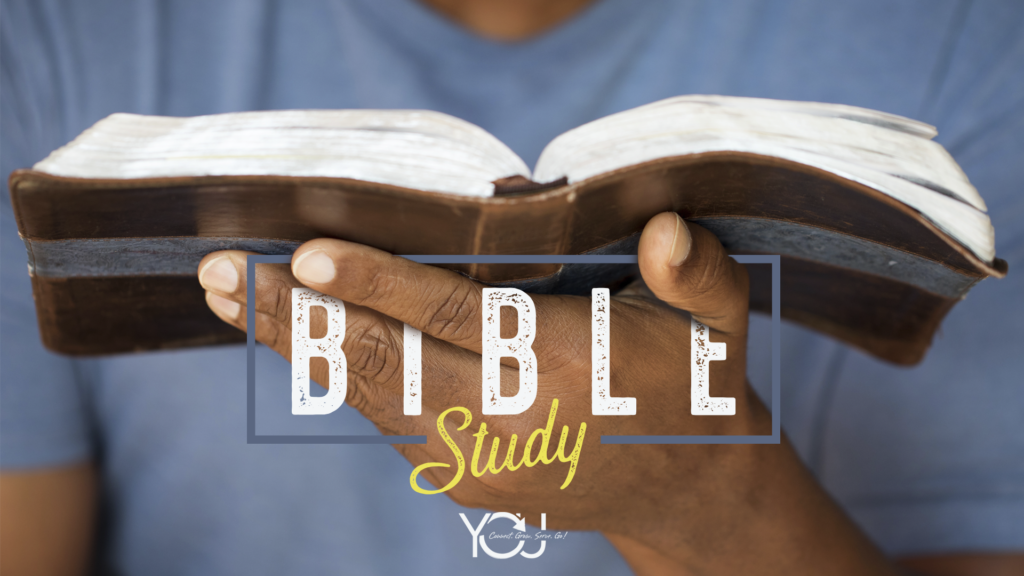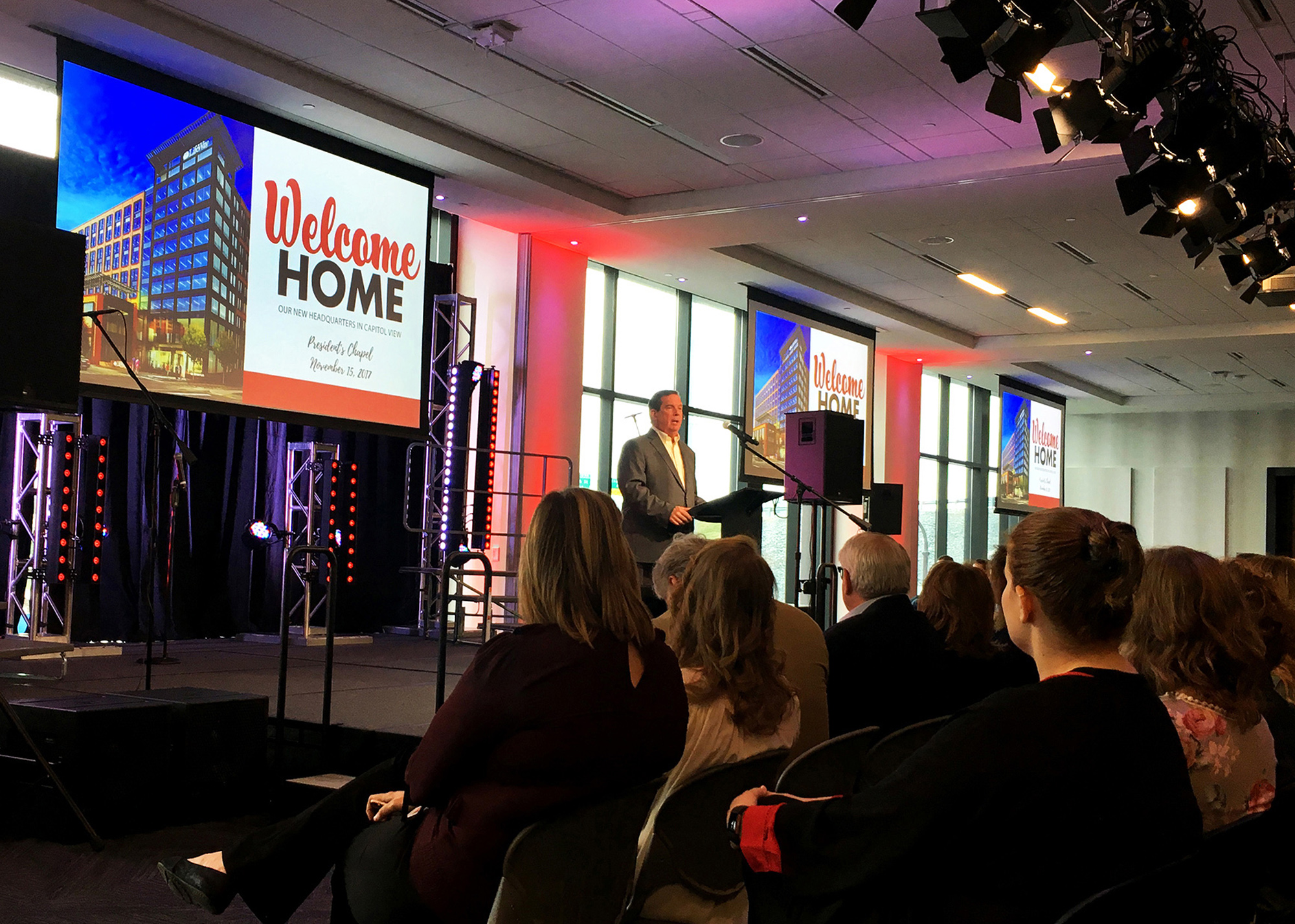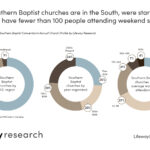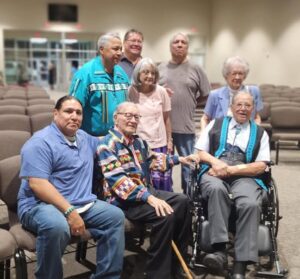
NASHVILLE (BP) — This weekly Bible study appears in Baptist Press in a partnership with Lifeway Christian Resources of the Southern Baptist Convention. Through its Leadership and Adult Publishing team, Lifeway publishes Sunday School curricula and additional resources for all age groups.
This week’s Bible study is adapted from the YOU curriculum.
Bible Passage: Isaiah 38:9-20
Discussion Questions:
- Which phrases in the passage most resonate with you?
- How would you describe Hezekiah’s attitude shift in these verses?
- Why is it important for us to express thanks both publicly and privately?
Food for Thought:
None of us enjoy problems. We imagine that a life free from trouble would bring us peace and happiness. Yet, life doesn’t work that way. Problems are an inescapable part of our human experience. While we can’t choose the challenges we face, we have the power to choose how we respond. This truth is illustrated in Isaiah 38, where King Hezekiah is facing imminent death. Hezekiah did not give in to despair or resign himself to defeat, but instead turned to God in heartfelt prayer for God’s mercy and intervention.
Hezekiah’s response reminds us that problems, no matter how intimidating, are opportunities to deepen our trust in God and align ourselves with His will.
God heard Hezekiah’s prayer and granted him an extension of life, demonstrating His power and faithfulness. As we reflect on this passage, let us examine our own responses to life’s challenges. Do we allow them to overwhelm us, or do we bring them to God in faith? Let’s discover how His faithfulness can transform even our darkest circumstances into testimonies of His grace.

Read Isaiah 38:9-10. Have you ever looked back on life and seen God working on your behalf? Oftentimes in hindsight, we’re able to see God clearer than when we initially went through the experience. This is the testimony of King Hezekiah. He has written a poem about a period of adversity in his life.
In his reflection, he can see the hand of God moving in his circumstances. He wrote a surprisingly vulnerable and brutally honest poem in which he described his near-death experience.
Hebrew poetry is characterized by literary features that can tuck the interpretation just beneath the surface of its figurative language. This requires a closer reading since the message isn’t always obvious or intuitive.
The first part of Hezekiah’s poem offers a window into his thoughts. He described his experience of walking through the valley of the shadow of death, though he didn’t realize it was a mere shadow at the time. He connected his impending death with a place called Sheol, a Hebrew term for the afterlife or the realm of the dead. Everybody has a reservation in Sheol, but Hezekiah wanted to postpone his trip.
It’s clear that Hezekiah attributed his sickness and impending death directly to God (vv. 12-13). He finally turned his attention toward the heavens and cried out with the only voice he could muster. He prayed a simple childlike prayer: “Lord, help me!” God answered Hezekiah’s prayer. Hezekiah was unmistakably clear about one thing: his healing came only by the hand of God. He acknowledged that God had spoken to him. There are times God desires to speak to us but we are inattentive or too focused on our problems to hear Him, or simply unwilling to hear.
Searching for the right words to convey his feelings, Hezekiah began in an attitude of repentance. He was not going to be like those who, when the consequences are removed, go right back to life as usual. When Hezekiah was granted an extension of time, he was careful to give all the credit to God for his “new lease on life.” It was God’s decision to let him live (v. 16).
In His lovingkindness, God assigned Hezekiah to the Pit and then came to his rescue. This was a preview of things to come, when Christ would go to the Pit himself to rescue sinners from eternal death. There can only be rescue when there is repentance, and that’s where the suffering enters.
It was God’s kindness that brought Hezekiah to repentance, but it was a kindness of wounding. God was willing to hurt to heal because that’s what a perfect loving Father does. It was for Hezekiah’s peace or well-being that God afflicted him with “intense bitterness” (v. 17).
Hezekiah’s life would be extended so he could express gratitude to God and publicly proclaim His goodness. His healing wasn’t exclusively about Hezekiah but about all those who would hear his praises and join the celebration. Hezekiah reasoned from the psalms that dead people cannot rejoice in God, at least not in the same way that the living delight in Him (Psalm 30:9).
The end of his poem reveals that Hezekiah’s life purpose was radically altered by his return from the brink of death. His answered prayer ignited in him a passion to praise God publicly. The majority of his pronouns up to this point had been personal. Hezekiah had been telling his own story. But in his closing words, he shifted to plural pronouns as he considered the final outcome of his suffering.
Hezekiah used his pain and subsequent deliverance as a platform to honor God in the presence of many witnesses. Humbled by his illness, Hezekiah no longer saw his primary role as one of ruling in the palace. Instead, he would devote the remainder of his life to worship in the house of the Lord.
YOU
YOU is committed to providing a complete Bible study experience for small groups and classes. Every session is written through an urban and multiethnic lens that provides relevant, engaging and applicable studies that not only encourage and equip people, but also motivate them to mission. This flexible, non-dated, all-in-one quarterly resource offers weekly Bible study for leaders and learners, devotionals and teaching plans, as well as articles on hot topics and missions. For additional downloadable online teaching resources, visit You.Lifeway.com.




















